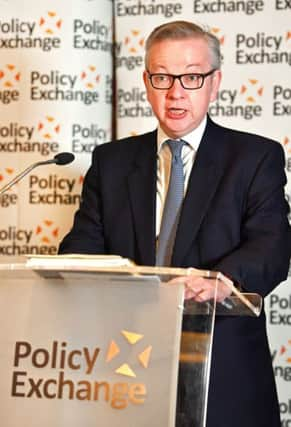Legacy of BSE could be removed by leaving EU


As markets have reopened and controls eased we have moved into a post-BSE era. However one legacy from the years when the disease dominated the headlines remains. That is a distrust in science when it comes to food. That has changed how technology is seen in agriculture. For years we believed the pursuit of productivity and technology was the road to success. It probably still is, but when consumers decided BSE was down to the failure of science that became a wider distrust of technology.
Brexit – when and if it finally happens – is an opportunity to move away from the EU’s distrust of science. There it is even more deeply rooted. It goes back well before BSE to hormone growth promoters in beef production, which was the first ban on technology. That moved on to the precautionary principle being applied in other areas, led by a hostile regulatory approach towards genetically modified (GM) crops and ingredients. A move towards a more open approach was one of the promises, when farmers were canvassed to vote leave in 2016. The promise then was that the UK would have an outward looking, productive and technologically efficient farming industry. This would be a break with the CAP and the result would be an industry more globally competitive than when tied to the CAP.
Advertisement
Advertisement
One of those leading the leave camp at the time was Michael Gove, who when he moved to DEFRA had the perfect opportunity to deliver on those promises. However like the millions of pounds a week promised to the NHS on the side of the red bus, that too now seems to have been a pipe dream. Instead Gove is going in the opposite direction. He wants the UK to have world-beating environmental and animal welfare standards.
That is laudable, but those have to be a balance between efficient food production and profitable farming on one hand and protection on the other. The criticism of the EU was that it got that balance wrong, but there is a risk the UK is not only heading in the same direction but likely to make matters worse.
The support structures of the post-2020 CAP are still based around helping farmers and delivering a secure food supply. In the UK, when the Agriculture Bill is finally passed, support structures will be about rewarding farmers for delivering public good, in the shape of higher environmental standards. The Conservative party, which was once proud to represent farmers from the so-called shire counties, could be the party that turns them into a nation of park keepers. Food production will be secondary, and that is not what farmers wanted when they voted leave in 2016. This is all about votes and there are no UK votes in farming or food production. By contrast, in the EU, there is a powerful farming lobby, and surveys have shown that people are happy to pay for a CAP that supports farmers.
Brexit really will have gone wrong if people look at what is happening in the EU-27 and regret the UK’s departure. To work it has to be an opportunity, and in agriculture that means delivering on those 2016 promises. However at Westminster the farming lobby has lost out to green groups when it comes to influencing policy. That reflects a head count of where votes lie.
Advertisement
Advertisement
Recently the CAP came in for yet another mauling in a report from Greenpeace. The report was a prime example of never letting the facts get in the way of a publicity campaign. It claimed the CAP had created
large, intensive farms; it claimed 70 per cent of arable land was used for beef and dairy and that 70 per cent of livestock are produced on ‘large’ farms. The call was for a CAP based initially on a extensive farming, en route to one based solely on plant-based diets. To its credit the European Commission dismissed the report and what it described as a ‘dubious’ use of statistics. It defended the CAP and its plans for what will be in place after 2020. The CAP and Brussels are far from perfect, but it was good to see it make a stand. The question that raises is whether the now ultra-green Gove would also dismiss the same claims. I suspect the answer is no, and that the park keeper role is what lies ahead.